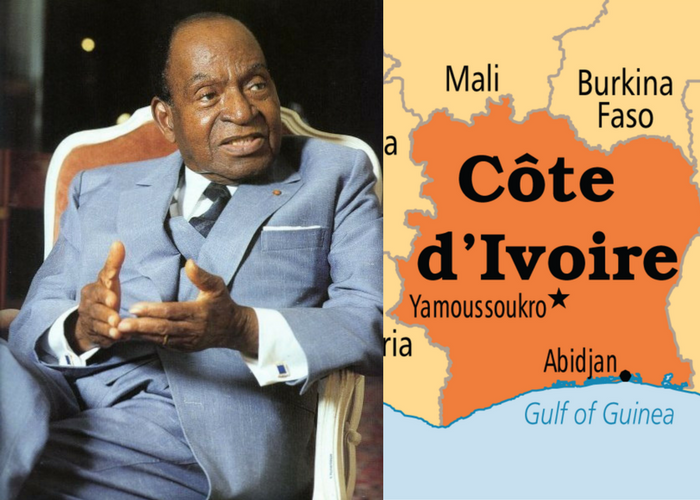
A Brief History of Ivory Coast’s First President Houphouet-Boigny
Present day Ivory Coast is inhabited by the Mande, Kru, Akan, Malinke and Voltaic. France’s claim to present day Ivory Coast was recognized by other European powers in the 1880s and eventually declared it a colony in 1893. In the 1940s, many native Ivorians resented the preferential treatment given to the French.
One of those wealthy planters was Felix Houphouet-Boigny. He was responsible for transforming the African Agricultural Syndicate (SAA) into the Democratic Party of the Ivory Coast (PDCI). The party was able to lead demonstrations between 1948 and 1949. The native Ivorians were demanding greater political participation and higher commodity prices. About 52 people died during these demonstrations. In the 1950s, Houphouet-Boigny opposed attempts to create regional federations. However, when Independence was declared, he became the country’s leader.
The economy of the Ivory Coast grew steadily in the 1960s and 1970s. Houphouet-Boigny supported growth in agriculture. However, their development slowed when commodity prices fell. During that time, the government abolished the one party state but also had to implement austerity measures. In 1985, Houphouet-Boigny won a sixth term and his party won the majority in the National Assembly.
In 1983, Houphouet-Boigny declared his hometown of Yamoussoukro, the nation’s official capital. He also commissioned a cathedral that could hold about 500,000 people, half the number of Catholics in the entire country and Pope John Paul willingly dedicated this building in January 1990. In February and March, students and civil servants began to protest. Houphouet-Boigny responded by closing schools and the university.
Rogue soldiers attempted a coup by taking over Abidjan airport in May. As a result, President Houphouet-Boigny agreed to multiparty elections for the National Assembly and the Presidency. 500 candidates the 175 seats in the National Assembly, President Houphouet-Boigny was challenged by Laurent Gbagbo but won 81 percent of the vote. Though the opposition lost, they continued to protest the election results.
In February 1992, the disgruntled opposition and students staged mass demonstrations against President Houphouet-Boigny and his government. Laurent Gbagbo and the President of the Human Rights League were arrested. International pressure forced President Houphouet-Boigny to grant immunity to the protestors and he extended it to soldiers as well. President Houphouet-Boigny died in 1993 and the President of the National Assembly Konan Bedie became the new President.




2 Comments
by Cee Zee
He has no legacy. More than 30 years in power & no results.
by Denny Kimathi
He is a traitor to his people. Boigney killed one of Africa’s greatest sons, Sankara. This guy is responsible for Compaore & his pathetic rule & lack of development in Burkina Faso. Boigney hated Africans. He deserves no place in African history except next to Adolf Hitler.
Comments are closed.